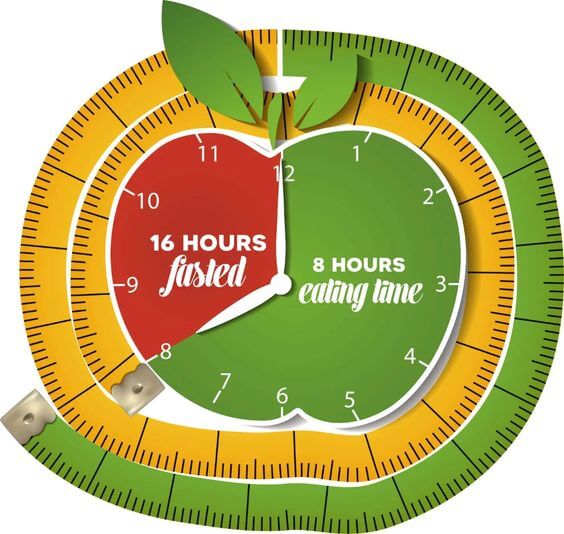
In the ever-evolving landscape of fitness trends, few approaches have garnered as much attention and acclaim in recent years as intermittent fasting (IF). From fitness enthusiasts to health professionals, the concept of strategically timing meals for improved health outcomes has sparked widespread interest and debate. Let’s delve into what intermittent fasting entails, its potential benefits, and how you can incorporate it into your lifestyle.
Understanding Intermittent Fasting
Intermittent fasting isn’t a diet in the traditional sense but rather an eating pattern that cycles between periods of eating and fasting. Unlike traditional diets that focus on what you eat, IF focuses on when you eat. Commonly practiced methods include:
- 16/8 Method: This involves fasting for 16 hours each day and restricting your daily eating period to 8 hours, typically by skipping breakfast and having your meals between noon and 8 pm.
- 5:2 Diet: Here, you eat normally for five days of the week and restrict calorie intake to around 500-600 calories on the other two non-consecutive days.
- Eat-Stop-Eat: This method involves fasting for 24 hours once or twice a week, such as not eating from dinner one day until dinner the next day.
- Alternate-Day Fasting: As the name suggests, this method alternates between days of regular eating and days of fasting or consuming very few calories.
Benefits Backed by Science
Advocates of intermittent fasting often cite several potential health benefits supported by research:
- Weight Loss: By reducing calorie intake and increasing metabolism, IF can aid in weight loss and fat burning.
- Improved Metabolic Health: IF has been shown to reduce insulin resistance, lower blood sugar levels, and decrease inflammation, which are risk factors for chronic diseases like type 2 diabetes.
- Enhanced Brain Function: Some studies suggest that IF may promote brain health by boosting the production of brain-derived neurotrophic factor (BDNF), a protein that supports brain function and protects against neurodegenerative diseases.
- Longevity: Research in animals has indicated that intermittent fasting can extend lifespan by improving cellular health and reducing oxidative stress.
Incorporating Intermittent Fasting into Your Routine
Before diving into intermittent fasting, consider these practical tips:
- Start Slowly: Begin with a less restrictive fasting schedule, such as the 16/8 method, and gradually increase fasting periods as your body adapts.
- Stay Hydrated: Drink plenty of water during fasting periods to stay hydrated and curb hunger.
- Listen to Your Body: Pay attention to how your body responds to fasting. If you experience dizziness or discomfort, adjust your fasting schedule or consult a healthcare professional.
- Combine with Balanced Nutrition: While intermittent fasting doesn’t restrict what you eat, focusing on nutrient-dense foods during eating periods will enhance overall health benefits.
Is Intermittent Fasting Right for You?
Intermittent fasting isn’t suitable for everyone, especially those with certain medical conditions or who are pregnant or breastfeeding. It’s essential to consult with a healthcare provider before starting any new diet or fasting regimen, especially if you have concerns about its impact on your health.
In conclusion, intermittent fasting has emerged as a compelling strategy for weight management and overall health improvement, backed by scientific research and embraced by many in the fitness community. Whether you’re looking to shed pounds, enhance metabolic health, or simply explore new dietary patterns, IF offers a flexible approach that could potentially transform your fitness journey. As with any lifestyle change, moderation, awareness, and personalized guidance are key to achieving sustainable results.
Embrace the power of intermittent fasting and discover a new dimension of fitness and well-being. Your journey towards a healthier you starts now!
Exploring the Impact of Intermittent Fasting on Fitness

Beyond its potential health benefits, intermittent fasting (IF) has also gained traction in the fitness world for its perceived effects on athletic performance and muscle gain. Here’s how IF intersects with fitness goals and considerations for integrating it into your workout routine.
Fitness and Intermittent Fasting: A Synergistic Approach
- Preserving Muscle Mass: Contrary to concerns about muscle loss during fasting periods, studies suggest that IF can actually help preserve muscle mass while promoting fat loss. This is partly due to an increase in human growth hormone (HGH) levels during fasting, which aids in muscle preservation and recovery.
- Enhancing Fat Utilization: IF encourages the body to use stored fat as an energy source, which can be beneficial for endurance athletes and those aiming to improve body composition. By training the body to rely more on fat for fuel, intermittent fasting may enhance overall metabolic flexibility.
- Optimizing Workout Timing: Some individuals find that scheduling workouts towards the end of a fasting period (e.g., before breaking a fast) can maximize fat burning and improve energy levels due to elevated adrenaline and cortisol levels. However, it’s essential to listen to your body and adjust timing based on personal comfort and performance.
Practical Tips for Fitness Enthusiasts
- Nutrient Timing: To support muscle repair and recovery, focus on consuming balanced meals rich in protein, healthy fats, and carbohydrates during eating windows. Aim to include quality sources of nutrients post-workout to replenish glycogen stores and support muscle synthesis.
- Hydration and Electrolytes: Maintain adequate hydration during fasting periods, especially if you’re active. Consider adding electrolytes or sports drinks to your routine to support hydration and performance.
- Monitoring Progress: Keep track of fitness metrics such as strength gains, endurance improvements, and changes in body composition to gauge the impact of intermittent fasting on your fitness goals. Adjust your fasting schedule or dietary intake as needed to optimize performance and recovery.
Integrating Intermittent Fasting Safely
While intermittent fasting can complement fitness goals, it’s crucial to approach it with mindfulness and adaptability:
- Balanced Approach: Avoid extreme calorie deficits or overly restrictive fasting schedules that could compromise performance or overall health.
- Consultation: If you have specific fitness goals or medical considerations, consult with a fitness trainer or nutritionist who can provide personalized guidance on incorporating intermittent fasting into your regimen.
- Consistency: Like any fitness strategy, consistency is key. Establishing a sustainable routine that aligns with your lifestyle and preferences will enhance long-term adherence and results.
Final Thoughts
Intermittent fasting continues to evolve as a versatile tool in the realm of fitness, offering potential benefits beyond weight management to include enhanced metabolic health, improved muscle preservation, and optimized workout performance. By understanding its principles, listening to your body’s cues, and seeking professional advice as needed, you can harness the power of intermittent fasting to support your fitness journey effectively. Whether you’re aiming to elevate endurance, sculpt lean muscle, or achieve a healthier body composition, IF presents an intriguing avenue worth exploring under the guidance of informed decision-making and personalized planning.
